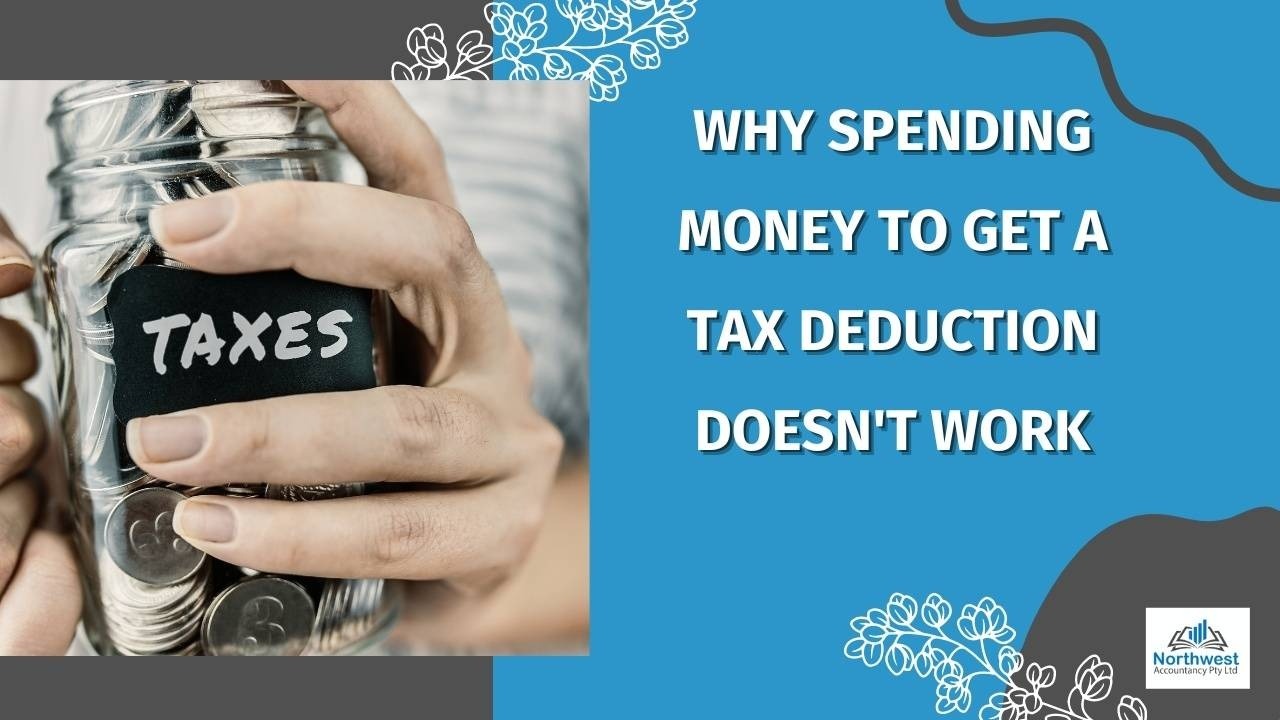Why spending money to get a tax deduction doesn't work
May 06, 2022
When you spend money, if it is in relation to your work, or creating an income, that money then becomes tax-deductible.
Some people say that having a negatively geared rental property is great because you will get a refund at the end of the year.
Let's unpack that.
1. A negatively geared property means that you are spending more on the property than the rent you receive in.
Unless your property is negatively geared because of high depreciation, you will be in a cash-poor situation. For this to work, you have to have excess funds that can go towards the upkeep of the property.
2. The refund at the end of the year is after you have lodged your tax return. You may be able to get back some of the extra tax you have paid throughout the year. Over the years we have found that some people lodge their tax returns and then use the refund amount to pay the rates for the property.
3. It's great - well, actually, it's not. Let's look at some numbers.
Rental Income = $20,800 ($400 per week)
Less your costs:
- Rates, Water, Insurance (holding costs)
- Maintenance
- Depreciation (this is not a payment you make, but rather an amount of your profit being brought forward each year)
- Interest on your loan (NOTE here that it's only the interest you can claim, and not the full amount you pay towards the loan. So any amount you are decreasing the loan balance by will give you equity in the property, but not be claimable)
- Real Estate charges
On average, the holding costs are roughly $5,000 per year (depending on where your property is and how much the insurance is). Add on your loan interest which depends on your interest rate and how big your loan is, this could eat up all of the rent money.
A mortgage of $500,000 is repayments of $2228 pm (interest rate 2.44%) - which is $26,735 in payments, even though you are only receiving $20,800 in rent. In the first year, the interest on a $500,000 loan that you have paid is $12,036 and you have paid down $14,699 of your loan - meaning only $12,036 is what is shown on your tax return.
If your property is managed by a real estate agent, they will take their fees out before the rent comes to you too - so you won't get the whole $400 in the bank each week (and most agents tend to pay you monthly).
When it comes time to lodge your tax return, we add up the income $20,800 and deduct the costs:
Holding costs $5,000
Interest $12,036
Real estate agent fees $1,664
Depreciation $10,000
Total Tax deductions: $28,700
Negatively geared amount: $7,900
This is a nice tax deduction against your other income.
If you have no other income, then you won't get a refund, as you have paid no tax.
(A tax refund is a repayment of too much tax you have paid)
If you are in the top tax bracket, you will get an estimated $3,555 refund.
However, let's look at the cash situation.
Income is $1594 per month (taking out the real estate fees).
Mortgage payment is $2228
You are out of pocket each month by $634.
Then spread out over the year you have holding costs $5,000 and maybe some surprise maintenance to pay too.
But you do get your refund back of $3555.
Over the whole year, you are out of pocket $9,053.
So is negative gearing good?
The short answer is no, but the longer answer is, it is if it is a part of a long term strategy to make more money.
When your property increases in value it will make you more money.
When you pay down your loan and sell the property you will see additional cash.
But is the increase in value, and the equity you create by paying down the loan (faster or not) MORE than what you are losing every year to pay yourself back?
In my experience over the last 15 years, this has not been the case. People are out of pocket by thousands of dollars and only just are seeing the house prices come back to what was paid for the house initially. (Some suburbs have done well, but generally, in Australia, the trends have been the same).
Do you need to do the numbers on your rental property?
If you know that your property is costing you money but are not sure how much, try this simple trick:
Set up a bank account for just that property. Get all the income into that account, and the costs coming out too, and see how much you have to top it up every month or year.
SUBSCRIBE FOR WEEKLY LESSONS
We hate SPAM. We will never sell your information, for any reason.

